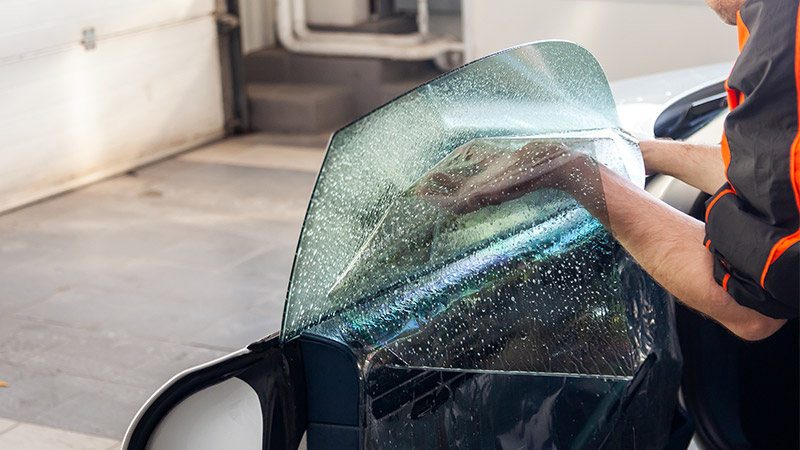The Window Tinting Process
Window tinting is a process in which a thin, transparent film is applied to the windows of vehicles, homes, or commercial buildings. The primary purpose of window tinting is to reduce the amount of sunlight and heat that enters through the windows, providing various benefits such as increased privacy, improved energy efficiency, and enhanced aesthetics.

There are several reasons why people choose to have their windows tinted:
- Heat Reduction: Window tinting window tinting portsmouth can significantly reduce the amount of heat that enters a space. This is especially beneficial in areas with hot climates, as it helps to maintain a more comfortable indoor temperature and reduces the need for excessive air conditioning.
- Glare Reduction: Tinted windows can minimize the glare from direct sunlight, headlights, and reflections, making it easier to see and reducing eye strain.
- UV Ray Protection: Window films used for tinting are designed to block a significant portion of harmful ultraviolet (UV) rays. This protection is important for both people and objects inside the space, as prolonged exposure to UV rays can cause skin damage and fade colors of furniture, flooring, and other items.
- Privacy: Tinted windows provide an added level of privacy by limiting the visibility from the outside. This is particularly beneficial for homes and vehicles, preventing prying eyes from seeing the interior.
- Aesthetics: Window tinting can enhance the appearance of a building or vehicle. It gives a sleek and sophisticated look, adding a touch of elegance to the overall design.
- Energy Efficiency: By reducing the amount of heat entering a space, tinted windows can contribute to energy savings. Buildings with tinted windows often require less energy for cooling, leading to lower utility bills.
- Interior Protection: Tinted windows help protect the interior of vehicles and buildings from fading, cracking, and deterioration caused by prolonged exposure to sunlight.
It’s important to note that different regions and jurisdictions have regulations and laws regarding the darkness of window tinting. These regulations are typically in place to ensure that tinted windows do not impair visibility for drivers or create safety hazards. Before getting your windows tinted, it’s recommended to check the local laws to ensure compliance.
Window tinting is generally done by professionals who have experience in applying the film evenly and without air bubbles. The process involves cleaning the windows thoroughly, applying the tinted film, and then smoothing out any bubbles or imperfections.
In conclusion, window tinting offers a range of benefits, from improved comfort and privacy to increased energy efficiency and UV protection. Whether it’s for your vehicle, home, or commercial space, window tinting can be a valuable investment with long-lasting advantages.
